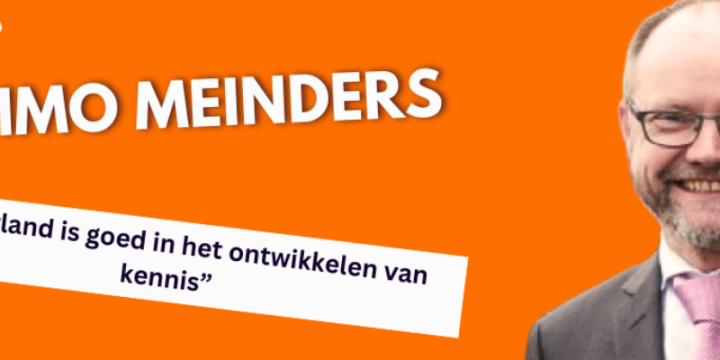The competitive position of Europe and the Netherlands in the global economy is under pressure. We want to be less dependent on critical raw materials and accelerate the production of cleaner (energy) technologies such as batteries, wind and solar. The European Commission issued proposals in mid-March to support this. The government sees the Net Zero Industry Act (NZIA), the Critical Raw Materials Act (CRMA) and the strategy for long-term competitiveness as steps in the right direction, but has several points for attention for the elaboration.
Minister Micky Adriaansens (Economic Affairs and Climate):
European cooperation is necessary to tackle unwanted dependence on non-EU countries and to stimulate innovation to make the industry more sustainable. This goes further than just extra public funding, but also faster permit granting and simpler rules. Everything that is needed to make doing business easier and to focus on results that we need to accelerate sustainability must be included in this.
This can be done even better in the future. For example, through better coherence between energy, environmental and nature legislation, which are now sometimes contradictory and slow down sustainable innovations. But also by including semi-finished products in the EU proposal for critical raw materials. And not only looking at green energy technology in the European proposal for cleaner industry, but also encouraging other innovations such as biorefinery and chemical recycling. The government will now carefully study these EU proposals in order to contribute to their elaboration.
NZIA also focus on more innovative technologies and removing regulatory pressure
The EU proposal for the Net Zero Industry Act focuses on simpler rules, speeding up permitting procedures and improving access to (private) financing for clean technology. Additional efforts to reduce regulatory pressure and improve the coherence between legislation are spearheads for the government.
The European Commission is now focusing the NZIA mainly on a number of sectors that strengthen the production capacity of green energy technology. But it is important to look more broadly at making the industry more sustainable, more support for promising technologies and room for experimentation for sustainable innovation.
In addition to critical raw materials, semi-finished products are also part of the CRMA
With the Critical Raw Materials Act, the EU intends to achieve sufficient availability of critical raw materials such as lithium and cobalt. Critical raw materials are needed for batteries, wind turbines, semiconductors, hydrogen production, solar panels and LED lighting, for example.
The Dutch cabinet has also stated that it will tackle the risks of new dependencies. For some of these critical raw materials, we are currently dependent on third countries that own 90% of the world's production. Control over critical raw materials can increasingly be used as a geopolitical weapon in addition to economic influence. In a previously published proposal, Minister Micky Adriaansens (EZK) argues that, in addition to raw materials, semi-finished products must soon also be part of the CRMA, because undesirable dependencies will also arise there.
In addition to building up more refining, processing, assembly, recycling and transport capacity in the Netherlands and the EU, it is also preferable to collaborate with other resource-rich countries. That supply chain is the expertise of companies themselves. However, the CRMA is a means of arranging coordination as well as insight. For example, when spreading risks by focusing on less scarce alternatives, circularity and alternative suppliers through innovation.
Attention to uniform application of legislation and a level playing field
A well-functioning internal market is the basis of competitiveness and the aim of reducing dependency in the EU. The Netherlands therefore argues that the European Commission should not only pay attention to legislation, but also to the universal adoption and application of that legislation in Member States. In addition, actively monitoring a level playing field in the EU internal market itself is a necessity, such as tackling unfair advantages through subsidies in tenders.
The responsible ministers, including Micky Adriaansens (EZK) on behalf of the Netherlands, will discuss the NZIA, the CRMA and the strategy for a well-functioning internal market in the EU Competitiveness Council in the coming months. After agreement in this Council and after negotiations with the European Parliament, this package will be converted into legislation.





